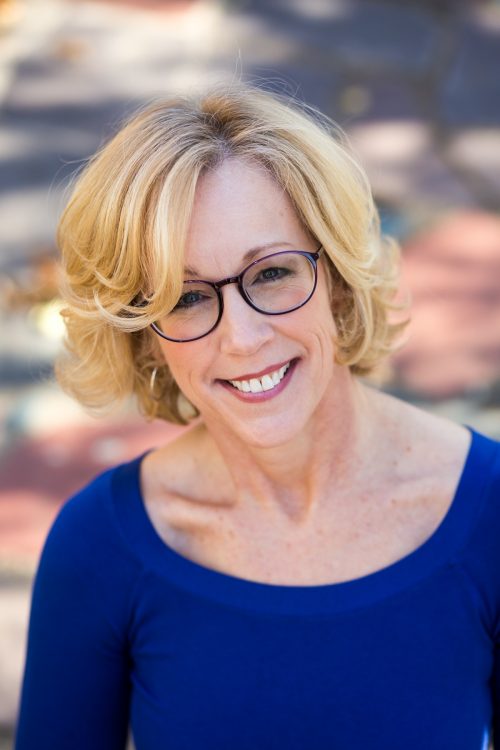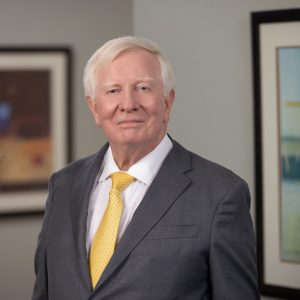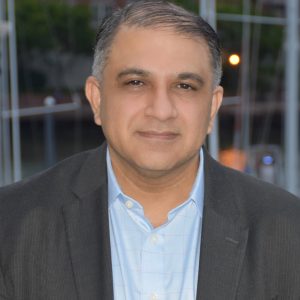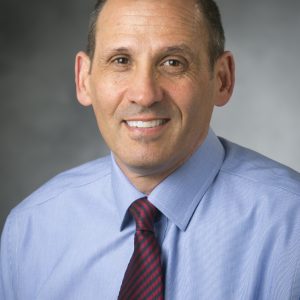CEO Leadership Series: Elizabeth Hanna, President, Human Health, & Chief Operating Officer, Origin

WHY STRONG PLANNING AND EXECUTION SKILLS ARE VITAL TO EARLY-STAGE COMPANIES
Elizabeth “Betsy” Hanna spent much of her career with large organizations – including pharma giants Bristol-Myers Squibb and Johnson & Johnson – where she ran the company’s Europe, Mideast, and Africa diagnostics business while based near London. But when the opportunity came along to join a tiny medical technology startup in New Jersey, she jumped at it.
As President, Human Health, and Chief Operating Officer at Origin, Inc. Ms. Hanna oversees the company’s plans to develop and commercialize medical technology that delivers plasma-stream therapeutic molecules generated at the point of care. Founded in 2010 as Advanced Plasma Therapies, Origin is a privately held, clinical-stage biotechnology company with 17 employees in the emerging field of plasma medicine, which combines plasma physics, life sciences and clinical medicine to use physical plasma for therapeutic applications. Origin is currently focusing on skin and soft-tissue infections and wound-healing, including diabetic foot ulcers.
In an interview with Ashton Tweed, Ms. Hanna explains how she uses her considerable planning and execution skills to keep Origin on track to reach its goals.
Like many senior executives, you left the big organizations to work at a small company. Why were you ready to move on?
I was ready for a new challenge. In the larger organizations, I found myself spending less and less time with patients or working on new products and ideas, and more time trying to manage budgets and internal politics. My passion is creating new businesses, creating new opportunities, working with my teams, and doing something that has an impact on patients’ lives. I felt like the more successful I was in the big healthcare companies, the farther away I got from that.
So you joined Origin as the Chief Operating Officer and a year later also became President of Human Health. How did that come about?
When I joined Origin, we were beginning our first human trials and needed to make changes to some of our early resources. As it can happen in an early stage company, our early partners were critical to getting the company over the first hurdles and initial conversations with the FDA, but when we began our early safety trial, we found gaps in our ability to execute the plan.
One of the strengths I bring from my experience is an understanding of how to focus on what needs to get done – and then make it happen. So I took over that responsibility, because after the planning phase we really needed to go into rapid execution. As I’m sure you know, in a small, pre-commercial company cash flow is everything. We have investors who put money in the business expecting us to clinically prove our technology, so getting our trials moving forward as fast as possible can determine the life – or death – of the company.
And that’s what I do well. We decided that it made sense to integrate all Healthcare business operations under one person, rather than having it split under a couple of different people.
Do find it challenging to be a female executive in your field?
Earlier in my career, I worked in more industrial, manufacturing, and engineering businesses where I could go for weeks without seeing another professional female. There just weren’t any other females at my level. The thing I love about healthcare is that’s not the case. There are women at all different levels, and we also have a very balanced team at Origin.
To me what matters more than being a woman is being open. In healthcare, we need deep functional expertise to be successful. In my role, it’s important to listen, be flexible, hear what my team of experts tells me, and be willing to be wrong.
What’s been your biggest challenge at Origin so far?
I think the biggest challenge is getting people to understand what it takes to get things done—the complexity of working with the FDA, external partners, and clinical sites. Once we say, “let’s go” and have regulatory approval to move forward, the real work begins. We have many stakeholders, including founders and investors, with different levels of experience in healthcare. This requires significant effort to build an understanding of resources and time required to accomplish our goals.
The other challenge was finding the right mix of experts who work well together —people with deep functional skills, senior enough to build and lead their function, and willing to do the work themselves and not just tell other people to do the work. Right now we’ve got 17 employees, and only eight of us working full-time on the human healthcare side. It’s not a very big team – so we’re going to spend a lot of time together.
What have you learned about effective execution?
I think there are a couple of things that shouldn’t be surprising, yet it’s amazing to me how often people don’t think about them. First, you have to know what you’re trying to achieve before you start taking action. You don’t have to wait until you have the perfect plan but you have to know what you want to achieve before you start. Second, you must have everybody on the same page about what you are trying to accomplish. Even in a very small company, it is so easy for people to interpret what they hear and start down a different path.
It sounds like good communication is key.
Exactly, and it’s not just within our team. Our external partners must be every bit as clear. It’s setting the deliverables and being crystal clear about what you’re trying to accomplish—and also being clear about what you’re not going to do.
What’s the best way to communicate with all these different groups?
It can be a bit cumbersome sometimes, but we have regular touch points. So, for example, we’re running a clinical trial right now and our Clinical Operations VP leads a weekly meeting – an informal gathering to discuss the different components of the work going on in this trial. We get everybody together and talk about what’s going on. We talk about what’s happened, solve problems if there are any, discuss who’s leading new work, and what we’re trying to get done. When we invest this time, everything runs better.
What skills do you need to be the go-to execution person in an organization?
You have to be able to gather different points of view and make decisions early. You have to set a clear path that people will follow. You also have to be able to focus on what matters right now. When I first came to the business, we had all sorts of ideas bouncing around and some of our people were trying to take action on ideas that were not going to be important for three or four years, until our trial is done. You have to filter out the noise of what doesn’t matter right now and focus on the things that do. And then you have to hold people accountable. Whether it’s your own team, yourself or your partners, you’ve got to set expectations and you have to hold people accountable to get stuff done.
How do you hold people accountable?
Be really clear about what we’re looking for and stay close with folks on what they can be doing to drive results. Because sometimes we don’t control everything we’re doing—when we work with the FDA we have clinical sites—so it’s about working with folks to understand: what are they doing to drive results and how are they managing the things that are not in their control? I don’t expect perfect results. That’s not what I’m looking for, but I am looking for all of us to make sure we’re moving toward our goals.
What’s coming up next for Origin?
We are currently conducting a dose-optimization trial, the equivalent of a Phase IIB trial. We’ve been working closely with the FDA to understand what is required to bring this new technology into the marketplace. If this current study is successful, I expect our next step will be a pivotal trial, which we hope will lead to a pre-market approval to market our device and therapy in the United States.
Ashton Tweed would like to thank Betsy Hanna for this interview. If your company needs help from members of the Ashton Tweed Life Sciences Executive Talent Bank, we can supply that assistance either on an interim or a permanent basis. Additionally, if you are among the many life sciences professionals affected by the changes in the industry, Ashton Tweed can help you find the right placement opportunity — from product discovery through commercialization at leading life sciences companies — including interim executive positions and full-time placements. In either case, please email Ashton Tweed or call us at 610-725-0290. Ashton Tweed is pleased to continue to present insightful articles of interest to the industry.
 Betsy Hanna
Betsy Hanna
Betsy Hanna joined Origin in 2014 as Chief Operating Officer and was named President, Human Health in 2015. Previously, she served as Vice President, Global Strategic Marketing at Johnson & Johnson Vistakon, Vice President, Europe, Mideast, and Africa at Johnson & Johnson Ortho Clinical Diagnostics, and Vice President, Worldwide Marketing at Johnson & Johnson Ortho Clinical Diagnostics. Ms. Hanna also held management roles at Tyco International and Bristol-Myers Squibb. She earned an MBA from the Harvard University Business School and a Bachelor of Science degree in chemical engineering from the University of Illinois. Ms. Hanna lives in Princeton, N.J., and enjoys a wide range of interests including sailing, scuba diving, underwater photography and golf.





